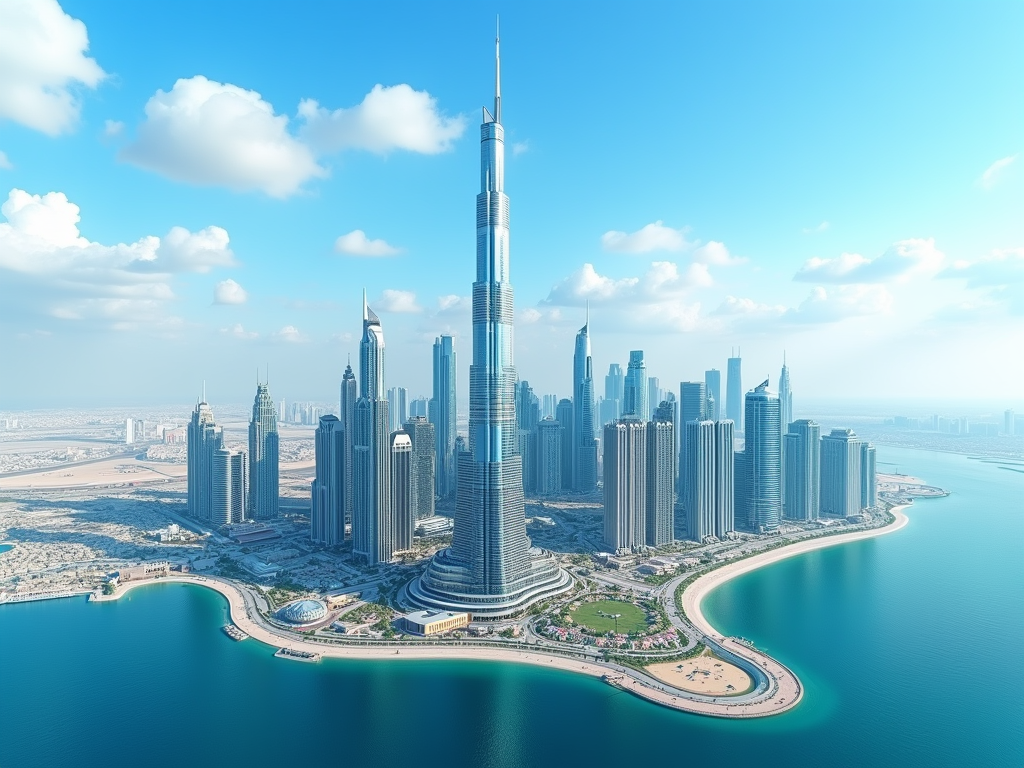Dubai’s real estate market is a vibrant and dynamic sector, characterized by luxury properties, a growing expat community, and investment-friendly regulations. For beginners, understanding this market can be both exciting and daunting. This guide aims to demystify the Dubai real estate landscape, providing insights into market trends, laws, and investment opportunities.
Understanding the Dubai Real Estate Landscape

The Dubai real estate market is unique due to its blend of modernity, luxury, and a multicultural environment. It offers a diverse range of properties from high-end villas to luxurious apartments and budget-friendly options. Understanding the landscape involves recognizing various factors such as location, property types, and buyer demographics. The UAE government has made significant changes to laws, making it easier for foreigners to invest in real estate. Here are key characteristics of the market:
- High ROI: Dubai’s properties typically offer high rental yields, often ranging between 6% to 10%.
- Tax Benefits: There are no property taxes or capital gains taxes, making it an attractive investment destination.
- Diverse Property Options: Properties range from skyscrapers to villas, catering to different tastes and budgets.
Legal Framework for Real Estate Investment

Before diving into Dubai’s real estate market, it’s essential to understand the legal frameworks governing property purchases. Foreigners are allowed to buy properties in designated areas, known as freehold areas, where full ownership is permitted. The transaction process is straightforward, but certain documents and fees must be considered:
- Title Deed: Ensure that the seller provides a valid title deed to confirm ownership.
- Purchase Agreement: A legal contract outlining the terms of the sale.
- Transfer Fees: Typically 4% of the property value, payable to the Dubai Land Department.
It’s advisable to engage a local real estate agent or legal advisor to navigate the complexities of purchasing property in Dubai.
The Dubai real estate market is influenced by various trends that can affect property values and investment opportunities. Factors such as economic fluctuations, tourism rates, and government policies play a pivotal role. Here are a few trends to keep an eye on:
- Expo 2020 Impact: The aftereffects of Expo 2020 are expected to drive further growth in the real estate sector.
- Affordable Housing Projects: The rise of affordable housing options catering to middle-income earners is increasing.
- Technological Integration: Developments are increasingly incorporating smart technology to enhance living experiences.
Financing Your Property Purchase
Financing a property in Dubai can be different from other markets. While many buyers opt for cash transactions, mortgages are also available. When considering financing, familiarize yourself with the following:
- Mortgage Types: There are fixed and variable rate mortgages to choose from.
- Eligibility Criteria: Typically, banks require a minimum deposit (commonly 20% for expats) and proof of income.
- Mortgage Costs: Consider additional costs such as valuation fees, insurance, and processing fees.
Thorough research and consultation with financial institutions will enable you to find the best mortgage tailored to your needs.
Conclusion
Dubai’s real estate market presents lucrative opportunities for both domestic and international investors. By understanding the landscape, legal framework, and market trends, as well as securing the right financing, you can make informed decisions. Whether you’re looking for a dream home or a profitable investment, Dubai’s diverse and rapidly evolving real estate market offers something for everyone. Start with thorough research, engage local experts, and stay updated on market trends to maximize your investment potential.
Frequently Asked Questions
1. Can foreigners buy property in Dubai?Yes, foreigners can purchase property in designated freehold areas in Dubai, allowing them full ownership rights.2. What is the average rental yield in Dubai?The average rental yield in Dubai typically ranges from 6% to 10%, depending on the property type and location.3. Are there taxes on property transactions in Dubai?No, there are no property taxes or capital gains taxes in Dubai, making it an attractive investment destination.4. What types of financing are available for property purchases?Buyers can opt for fixed or variable rate mortgages through various financial institutions, with banks typically requiring a minimum deposit of 20% for expats.5. How do I get started in Dubai’s real estate market?Begin by researching the market, understanding legal requirements, and consulting with local real estate agents or experts to guide you through the process.
